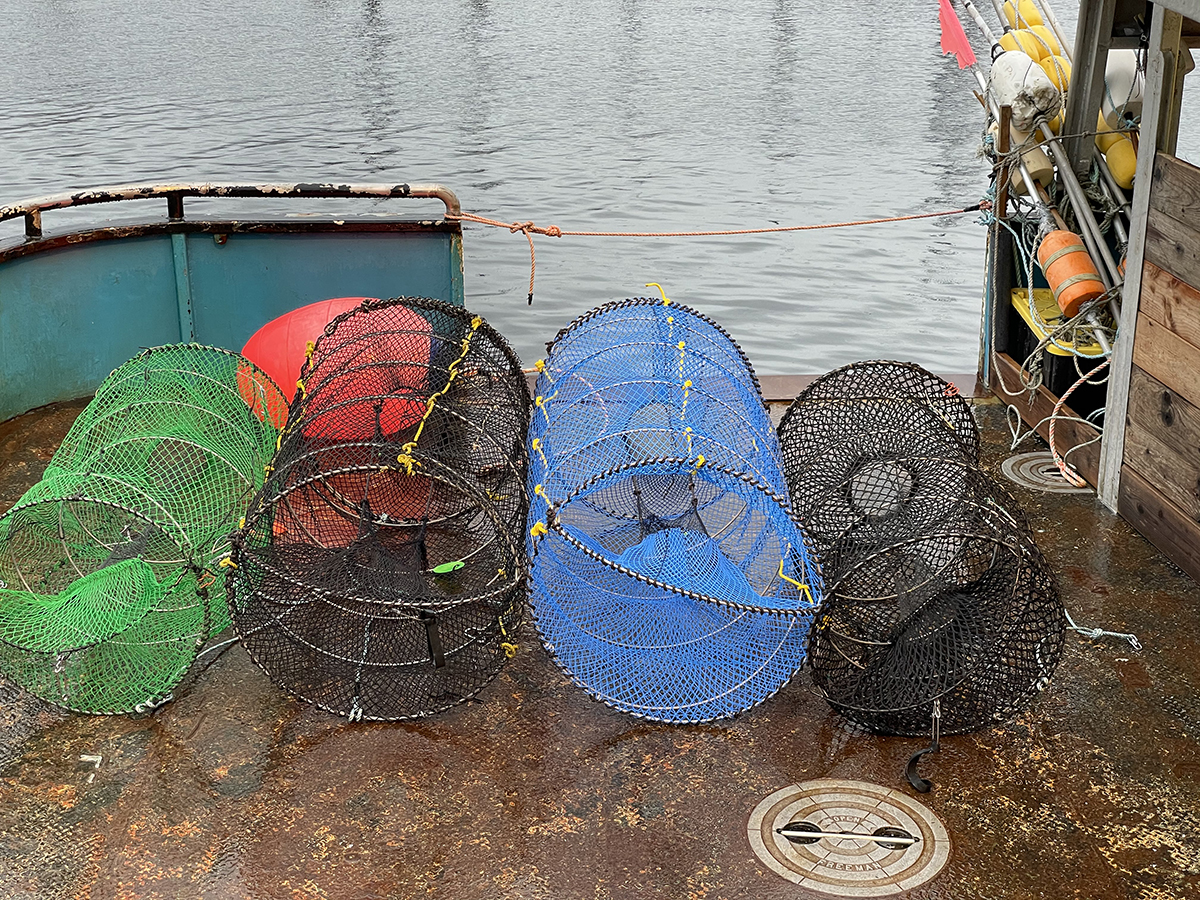Soft, collapsible pots — known as slinky pots — are swiftly taking over for hooks in Alaska’s blackcod fishery, offering an affordable, space-saving conversion that has all but eliminated crippling whale depredation.
Slinky pots were developed by California fisherman and biologist Alexander Stubbs, who needed a trap solution for longlining blackcod but did not have room for traditional rigid pots on his 25-foot vessel. Stubbs found inspiration in the smaller collapsible traps he uses to collect samples in his work as a biologist.
The sample traps “worked, but they just weren’t durable enough to be able to use them commercially, and obviously they weren’t big enough to catch blackcod,” Stubbs said.
He set about scaling up the sample traps until he found the right size and materials, settling on acoustic webbing that blocks whale sonar shrouded over galvanized spring steel frames.
Slinky pots — which Stubbs markets under the name CodCoil — hit the water en masse last summer to rave reviews from fishermen.
“We have thousands and thousands of these in use in Alaska now. People send me videos of sperm whales and orca whales diving on the gear, and they’re catching fish and making money,” Stubbs said.
Not only do the pots fit on decks that cannot accommodate rigid pots, they also weigh just 10 to 16 pounds and can be hauled without a new, pricey hydraulic system and haulers. Plus, the pots themselves are relatively cheap. Stubbs is now manufacturing a few different grades and sizes in Indonesia and China, with prices ranging from $75 to $150.







